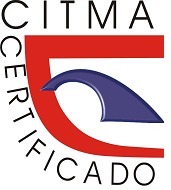Design and implementation of a model of an Environmental Information System for citizens
Keywords:
Arduino, smart city, environmental information, MQTT, Rasberri PiAbstract
This paper exposes the design and implementation of a prototype of an environmental information system for citizens based on free hardware platforms. The proposal is deployed on the Arduino and Raspberry Pi platforms. Using different sensors connected to an Arduino Mega board, the environmental variables of temperature, humidity, lighting and level of rain are measured, also taking the date and time information. The measured variables are displayed locally using a liquid crystal display. The information from the sensors is transmitted wirelessly using the MQTT communication protocol to a Raspberry Pi, in charge of concentrating the information and displaying it on a real screen. The system offers the possibility of local and remote configurations.
References
Modebadze, V. (2021). The issue of unchecked population growth and its effect on environmental degradation. Kut Bilim Sosyal Bilimler ve Sanat Dergisi, 1(1), 36-44. Recuperado de: https://dergipark.org.tr/en/pub/kutbilim/issue/69572/1109621
Naciones Unidas (2015). Perspectivas de la población mundial. Hallazgos clave y tablas avanzadas. Recuperado de: https://population.un.org/wpp/publications/files/key_findings_wpp_2015.pdf
Novotný, R., Kuchta, R., & Kadlec, J. (2014). Smart city concept, applications and services. Journal of Telecommunications System & Management, 3(2), 1-5.
Eremia, M., Toma, L., & Sanduleac, M. (2017). The smart city concept in the 21st century. Procedia Engineering, 181, 12-19.
Giffinger, R., & Gudrun, H. (2010). Smart cities ranking: an effective instrument for the positioning of the cities? ACE: architecture, city and environment, 4(12), 7-26.
Nordin, R. (2012). Creating knowledge-based clusters through urban development (Tesis Doctoral, Universitäts-und Landesbibliothek Bonn).
Costa, D. G., & Duran-Faundez, C. (2018). Open-source electronics platforms as enabling technologies for smart cities: Recent developments and perspectives. Electronics, 7(12), 404.
Sarkar, I., Pal, B., Datta, A., & Roy, S. (2020). Wi-Fi-based portable weather station for monitoring temperature, relative humidity, pressure, precipitation, wind speed, and direction. Information and Communication Technology for Sustainable Development (pp. 399-404). Springer, Singapore.
Rahut, Y., Afreen, R., Kamini, D., & Gnanamalar, S. S. (2018). Smart weather monitoring and real time alert system using IoT. International Research Journal of Engineering and Technology, 5(10), 848-854.
Brito, R. C., Favarim, F., Calin, G., & Todt, E. (2017, November). Development of a low cost weather station using free hardware and software. 2017 Latin American Robotics Symposium (LARS) and 2017 Brazilian Symposium on Robotics (SBR) (pp. 1-6). IEEE.
Semenov, E. S., Ivanchenko, G. S., Kharchenko, A. V., & Kolobanov, R. V. (2019, May). Mobile weather station based on AT mega 2560 microprocessor. IOP Conference Series: Materials Science and Engineering (Vol. 537, No. 3, p. 032086). IOP Publishing.
Novianty, I., Ferdika, A., Sholihah, W., Siskandar, R., & Sari, I. P. (2019, September). Design of Portable Weather Station Using MQTT Protocol. 2019 2nd International Conference of Computer and Informatics Engineering (IC2IE) (pp. 199-202). IEEE.
Tenzin, S., Siyang, S., Pobkrut, T., & Kerdcharoen, T. (2017, February). Low cost weather station for climate-smart agriculture. 2017 9th international conference on knowledge and smart technology (KST) (pp. 172-177). IEEE.
Bell, S., Cornford, D., & Bastin, L. (2015). How good are citizen weather stations? Addressing a biased opinion. Weather, 70(3), 75-84.
Tanner, B. D. (2009). Automated weather stations. Remote Sensing Reviews, 5(1), 73-98.
Rodríguez, A. R., Álvarez, J. R. V., González, J. G., & Benítez, V. R. (2018). Monitoring tool for water quality and quick alert of flooding. Sistemas y Telemática, 16(44), 25-34.
Salgueiro, L. J. G., González, A. A., & Rodríguez, P. A. R. (2018). Help button for elderly people on the Arduino platform. Sistemas y Telemática, 16(45).
Suárez, R. (2 de octubre de 2019). Prototipos para una ciudad inteligente. Granma. https://www.granma.cu/file/pdf/2019/10/02/G_2019100208.pdf
Delgado, T., Sánchez, A., & Reyes, R. (2019). Laboratorios urbanos para ciudades inteligentes: Primeros pasos en municipios cubanos. (Ponencia). X International Greencities Congress (Vol. 2019, p. 10).
Banzi, M., & Shiloh, M. (2022). Getting started with Arduino. Maker Media, Inc.
Mouser (2022). DHT11 Humidity & Temperature Sensor. Recuperado de: https://www.mouser.com/datasheet/2/758/DHT11-Technical-Data-Sheet-Translated-Version-1143054.pdf
Sparkfun (2022). Ultrasonic Ranging Module HC-SR04. Recuperado de: https://cdn.sparkfun.com/datasheets/Sensors/Proximity/HCSR04.pdf
Richardson, M., & Wallace, S. (2012). Getting started with raspberry PI. O'Reilly Media, Inc.
Novianty, I., Ferdika, A., Sholihah, W., Siskandar, R., & Sari, I. P. (2019, September). Design of Portable Weather Station Using MQTT Protocol. 2019 2nd International Conference of Computer and Informatics Engineering (IC2IE) (pp. 199-202). IEEE.
Lekić, M., & Gardašević, G. (2018, March). IoT sensor integration to Node-RED platform. 2018 17th International Symposium Infoteh-Jahorina (Infoteh) (pp. 1-5). IEEE.
Downloads
Published
How to Cite
Issue
Section
License
Copyright (c) 2022 Miguel Ángel González Muñoz, Alejandro José Cabrera Sarmiento

This work is licensed under a Creative Commons Attribution-NonCommercial 4.0 International License.













